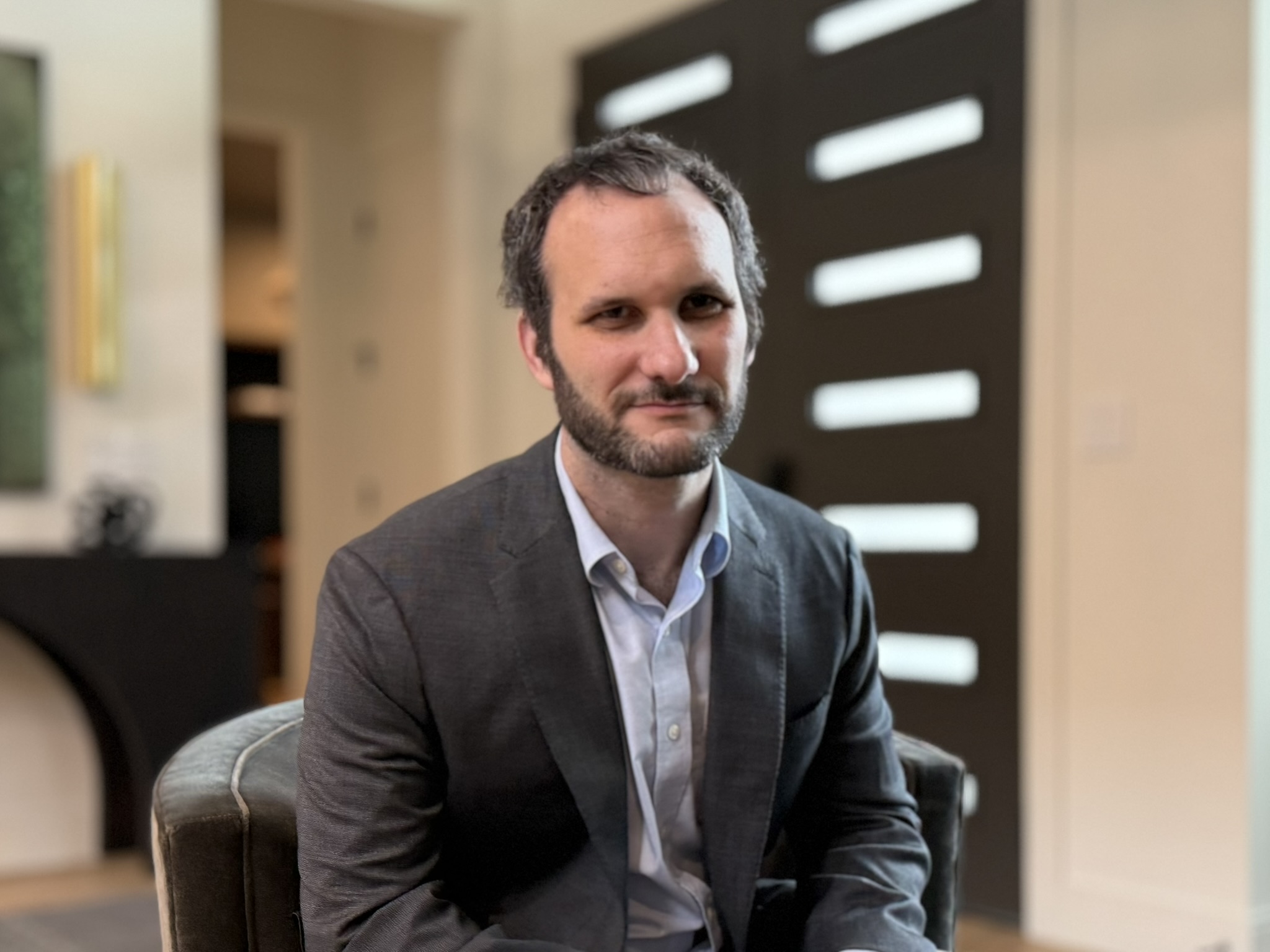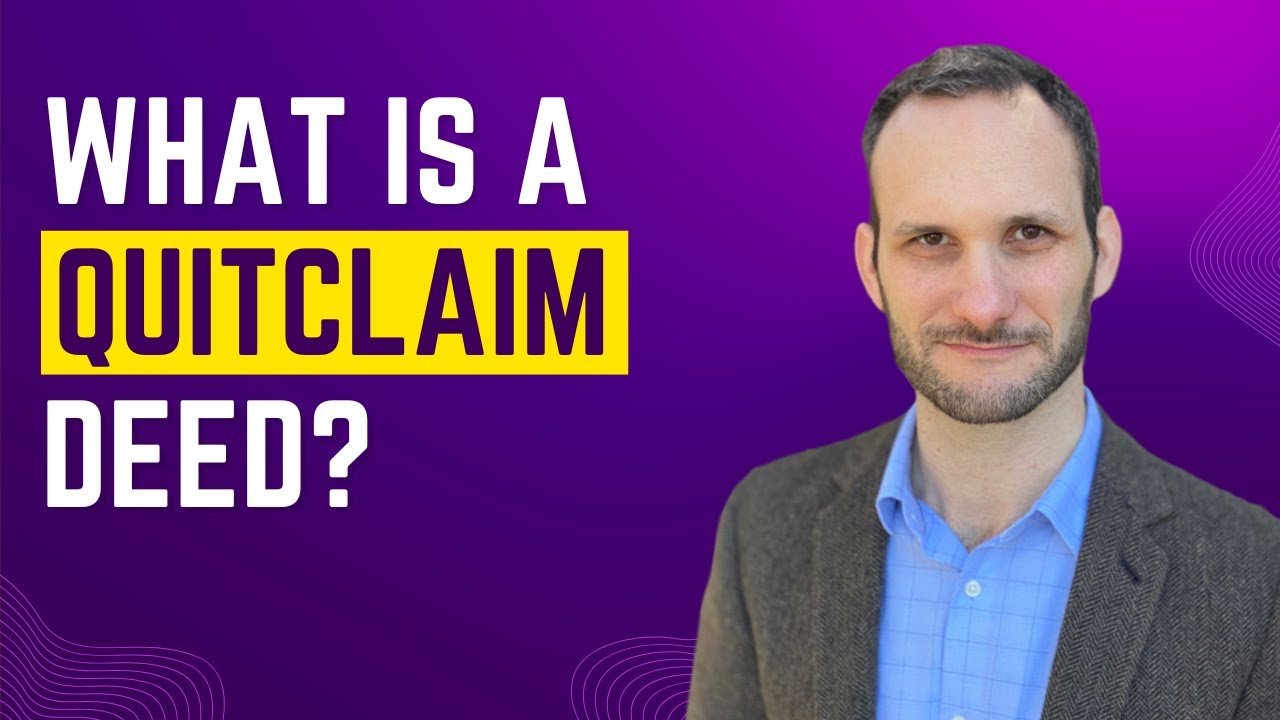What Is a Florida Quitclaim Deed and How Does It Work?
What Is a Quitclaim Deed?
A quitclaim deed is a legal document that quickly transfers real estate ownership without guaranteeing a clear title. Quitclaim deeds are commonly used between family members, divorcing spouses, or to correct errors in a title.
In Florida, a quit claim deed is the easiest way to change property title. This type of deed is used to (1) add or remove family members from the title, (2) transfer property to an LLC, (3) transfer property to a living trust, and (4) remove an ex-spouse from the title.
Understanding Quitclaim Deeds in Florida
A quitclaim deed in Florida transfers the grantor’s ownership interest in a property to a grantee but offers no guarantees about the quality of the title. If the property has liens, title defects, or encumbrances, they transfer along with the deed. A quitclaim deed cannot convey better title than the grantor possesses.
Quitclaim deeds are often used for transferring property between family members. The deed identifies the current owner as the grantor and the recipient as the grantee, and it can transfer full or partial ownership.
Florida Quit Claim Deed Rules and Requirements
Section 695.26 of Florida law spells out the requirements for getting a quitclaim deed. Here are the seven items that a quitclaim deed must include:
- Grantor. The current owner of the property.
- Grantee. The person receiving the property.
- Consideration. The amount of money received by the grantor in exchange for giving the property to the grantee.
- Legal Description. A formal written description is used to identify the property. Note this is not the USPS address.
- Signature of the grantor. But not the grantee.
- Signatures of two witnesses. As of January 1, 2024, you must include the mailing address for each witness.
- Signature of a notary.
We prepare deeds for clients throughout Florida.
We charge a flat fee for a consultation and preparation of your quitclaim deed. Our attorneys can do everything remotely by phone or Zoom.

Steps to Getting a Quitclaim Deed
Preparing a quitclaim deed in Florida involves four key steps:
- Identify the Property and Parties: Include the names and addresses of the grantor (current owner) and the grantee (new owner) and a clear description of the property.
- Draft the Deed: Use appropriate legal language to prepare the quitclaim deed form.
- Sign the Deed: The grantor must sign the deed in front of two witnesses and a notary public. If the property is a homestead and the grantor is married, both spouses must sign, even if only one spouse holds the legal title.
- Record the Deed: Submit the signed, witnessed, and notarized deed to the county clerk or the comptroller’s office in the county where the property is located. The county clerk will charge a small recording fee. If the property has a mortgage, you will also need to pay transfer taxes, which can be more costly.
Once recorded, the clerk’s office will return the original deed to the grantee. Recording the deed provides public notice of the ownership transfer and ensures the deed becomes part of the county’s official records.
Recording the deed establishes the new ownership in the official chain of title. An uninterrupted chain of title is essential for future title insurance or transactions, such as selling the property or securing a mortgage.

Quitclaim Deed After Divorce
In Florida, a quitclaim deed can be used to transfer property after a divorce pursuant to a marital settlement agreement or divorce judgment. The quitclaim deed transfers all interests that one spouse has in the property to the other spouse, and the transferring spouse complies with the terms of the divorce order or agreement.
Regardless of which spouse prepares the deed, only the transferring spouse must sign the deed. The receiving spouse does not need to sign the deed.
Adding a Name to a Deed in Florida
The simplest way to add a name to a deed in Florida is by using a quitclaim deed. Here are the steps:
- Complete the Quitclaim Deed Form: Include the property’s full legal description and the names of all parties involved. You will need the previous deed for reference.
- Sign the Deed: The grantor must sign the deed in front of two witnesses (at least 18 years old) and a notary public.
- Record the Deed: Submit the signed and notarized deed to the county clerk’s office where the property is located.
Adding a name with a quitclaim deed is common when transferring ownership to a family member or business partner.
Cost of a Quitclaim Deed in Florida
You do not have to be an attorney to prepare a Florida quitclaim deed. Absent attorney fees, your costs would only be the recording fees that the county comptroller charges and transfer fees if the property is mortgaged.
If you have any concerns about making the quitclaim deed legally correct, you could hire an attorney to write the deed. With an attorney, a quitclaim deed costs between $350 to $500 in most cases.

Quitclaim Deed vs. Warranty Deed
The main difference between a quitclaim deed and a warranty deed is the level of protection offered. A quitclaim deed transfers only the grantor’s interest without guaranteeing title, while a warranty deed guarantees clear title and protects the buyer against title defects, liens, or claims.
A warranty deed is the type of deed typically used in arms-length real estate sales to unrelated buyers. The warranty deed guarantees clear and marketable title to the property being sold. The grantor/seller is personally liable for title defects and liens that are discovered post-transfer by warranty deed. Title insurance companies will sell insurance for warranty deeds after the insurance company has examined the recorded chain of title.
In Florida, quitclaim deeds are most often used to transfer property to one’s family or a family LLC or estate planning trust. These transfers are typically for no consideration, and the recipient family member or family-owned business is less concerned about title issues. Transfer of real estate between unrelated people should almost never be done via quitclaim deed.
Can You Transfer Property with a Quitclaim Deed if You Have a Mortgage?
You can use a quitclaim deed in Florida even if the property is encumbered by a mortgage. The quitclaim deed does not alter or transfer the mortgage and does not change personal liability to pay the mortgage note.
In other words, the grantor will still be personally responsible to pay the mortgage lender after transferring the property. Technically, the lender could call, or accelerate, the entire loan due if they discover that the grantor has transferred the property without first paying off the mortgage.
This rarely occurs in practice. Lenders have no reason to call the loan due after a quitclaim transfer so long as the new owner continues making timely mortgage payments. Even if a loan were called, the grantee can refinance the debt or get their own loan to pay off the original mortgage debt.
Making a Quitclaim Deed After Death
You cannot make a quitclaim deed become effective after your death. Once you fully execute a quitclaim deed, the intended transfer of title is immediate (although it still needs to be recorded).
Another type of deed, called a lady bird deed, can effect an after-death transfer. A lady bird deed provides that the grantor keeps the property during the grantor’s lifetime and that legal title transfers automatically to a grantee upon the owner’s death.

Quitclaim Deed FAQs
Below are our answers to the most common questions we receive from our quitclaim deed clients.
How does a quitclaim deed work in Florida?
A quitclaim deed in Florida transfers whatever title the grantor has in real property to a grantee. The grantor provides no warranty that they are conveying clear and marketable title to the property. After the grantor signs the deed with two witnesses and a notary, the quitclaim deed is recorded in the county public records.
Why would someone do a quitclaim deed?
A quitclaim deed is usually done when a person transfers real estate to their own LLC or trust or to a family member.
What are the disadvantages of a quitclaim deed?
The disadvantages of a quitclaim deed include no guarantee of clear ownership, no protection against liens or title defects, and high risk for the buyer. The grantor transfers only the interest they have, if any. Quitclaim deeds are unsuitable for traditional real estate sales due to the lack of warranties.
Does a quitclaim deed give you ownership?
A quitclaim deed transfers whatever ownership interest the grantor has, but does not guarantee valid ownership. If the grantor has no legal title, the recipient gets nothing. Quitclaim deeds simply pass along any interest without warranties, making them unreliable for securing definite property ownership.
Can you sell your house with just a quitclaim deed?
You can sell a house with a quitclaim deed, but it is risky for buyers because the deed offers no guarantee of clear ownership. Most buyers and lenders require a warranty deed for protection. Quitclaim deeds are typically used for transfers between trusted parties, not for traditional real estate sales.
Sign up for the latest information.
Get regular updates from our blog, where we discuss asset protection techniques and answer common questions.










